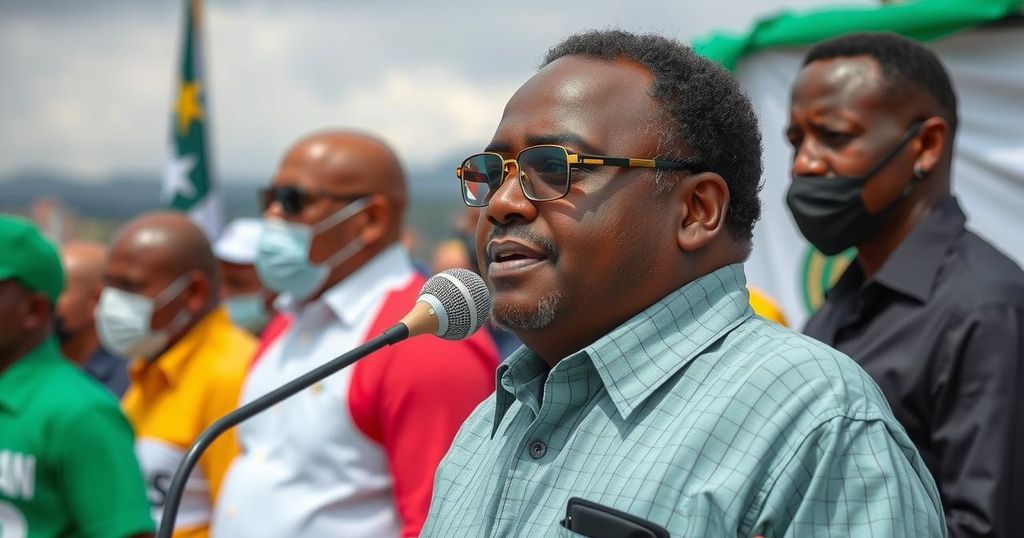Comoros Opposition Denounces Legislative Election Results Amid Fraud Allegations

The opposition in Comoros has rejected the results of the legislative elections, alleging significant fraud and a lack of transparency. Key opposition figures, including Daoud Abdallah Mohamed, criticized the process, while the ruling party celebrated its electoral success. A second round of voting is set for February 16, which the opposition has stated it will not contest.
On Monday, an opposition leader in Comoros vehemently rejected the results of the recent legislative elections, citing widespread allegations of significant fraud. The opposition largely boycotted the elections, held on Sunday, claiming the electoral process lacked transparency. Daoud Abdallah Mohamed, the leader of the United Opposition coalition and a former interior minister, characterized the elections as “marred by gross fraud, ballot box stuffing, and instances where the votes exceeded the number of registered voters.”
The independent electoral commission for Anjouan announced that candidates from the ruling Convention for the Renewal of the Comoros (CRC) party won 12 seats, reportedly securing between 60 and 100 percent of the votes, amid claims of a 70 percent voter turnout. Observers noted discrepancies during the voting, particularly in Anjouan, where voter turnout was suspiciously low but ballots were allegedly filled quickly. The minister responsible for elections, Fakridine Mahamoud, did not provide comments regarding these allegations.
In Moheli, four of the five constituencies featured only candidates from the ruling party, with the sole opposing candidate from the Orange party withdrawing during the election day. President Azali Assoumani, who has held power since 2016, dismissed the fraud allegations, challenging the opposition to substantiate their claims. A second round of voting is scheduled for February 16, with Mohamed confirming that the United Opposition will not participate in this upcoming election.
The article discusses the recent legislative elections in Comoros, an archipelago nation in the Indian Ocean, emphasizing the tension between the ruling government and opposition parties. Allegations of electoral fraud have arisen following a largely boycotted election, with key opposition figures disputing the integrity of the process. This situation is compounded by Comoros’ political climate and the authority wielded by President Azali Assoumani since his rise to power in 2016, alongside the historical patterns of opposition responses to election results, often marked by claims of irregularities.
In summary, the legislative elections in Comoros have been met with strong rejection by opposition leaders due to claims of rampant fraud and a lack of electoral transparency. The ruling party’s sweeping victories raise concerns about the legitimacy of the electoral process, particularly given the alleged irregularities. As tensions continue, the opposition’s decision to abstain from the upcoming second round highlights the ongoing political crisis within the nation.
Original Source: www.barrons.com






